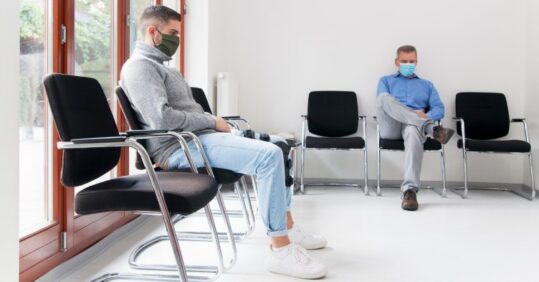Practices with lowest F2F appointment levels face ‘immediate’ action

Commissioners have been told to immediately begin identifying the 20% of practices in their area that are performing worst in terms of delivering face-to-face appointments, NHS England has said.
Practices identified as part of the exercise by integrated care systems (ICSs) may be forced to partner with other practices or face contractual action from commissioners, it added.
The measures come as part of a £250m ‘package of support’ for general practice announced today, which aims to ‘increase the proportion of appointments delivered face to face’.
Setting out the details, NHS England said all ICSs must start an ‘immediate exercise’ to identify any practices with overall appointment numbers lower than the ‘equivalent pre-pandemic months’ – excluding Covid vaccinations.
Related Article: QICN bids farewell to Dr Crystal Oldman as she retires from CEO role
Its ‘plan for improving access for patients and supporting general practice’ said ICSs must also identify the 20% of practices with:
- The ‘lowest level of face-to-face GP appointments – as opposed to whole practice, including appointments with other staff’;
- The ‘most significant level of 111 calls from their patients during GP hours’;
- The ‘most significant rate of A&E attendances compared to what would be expected’.
Each ICS must submit the list for ‘immediate’ action – which is ‘unlikely to be more than 20% of all local practices’ – to NHS England by Thursday 28 October.
The CQC will provide NHS England with practice-level data on complaints it has received and they will work together to ‘make the required improvements across those practices which are not meeting people’s reasonable needs,’ it added.
The CQC is ‘rapidly developing’ an inspection methodology focussing on ‘access to GP services’ and will make unannounced inspections ‘where appropriate’, it said.
And the 200 GP practices with the worst access will face a more ‘intensive and accelerated’ action plan using the ‘interventions that have shown most impact’ and ‘on-site support’ to develop a tailored ‘practice improvement plan’.
Meanwhile, NHS England said that the £250m winter funding is dependent on ICSs tackling ‘variation’ in access to GP care. National funding ‘will not be released to any ICS unless its plan adequately tackles’ increasing access for patients in the practices that are ‘struggling the most’, it said.
And practices whose GPs are not seeing enough patients face to face by November may be removed from the Covid vaccination programme, with their share of jabs ‘most likely’ given to community pharmacy, the plan added.
As part of the measures to improve access, NHS England said it will also commission a new QOF improvement model ‘focused on optimal models of access including triage and appointment type’.
Related Article: RCN to offer ‘safe space’ to discuss Supreme Court ‘sex’ ruling
All GP practices must complete a review of whether they have ‘got the balance right for patients between’ remote and in-person consultations as part of their ‘ongoing reflection’ by the end of October, the plan added.
NHS England said it comes as a ‘minority’ of practices are offering ‘wholly inappropriate access, with very low levels of face-to-face care’.
It said: ‘In August 2021, over 15% of practices recorded less than 20% of their GP appointments being held face to face. That is likely to be contrary to good clinical practice, even if it were to reflect the preferences of their patients.’
The RCGP will provide guidance on the ‘optimal blend’ of remote and face-to-face care by the end of November, it added.
Related Article: ‘Concerning acceleration’ in drug-resistant gonorrhoea ahead of vaccine programme
This will include ‘advice on how practices can ensure they are providing the appropriate proportion of in-person GP appointments for their registered population that is both clinically warranted and takes account of patient preferences’.
The BMA has warned that NHS England’s package is ‘flawed and patient care will suffer as a result’.
A version of this story was originally published by Nursing in Practice sister publication Pulse.

See how our symptom tool can help you make better sense of patient presentations
Click here to search a symptom




